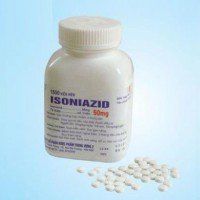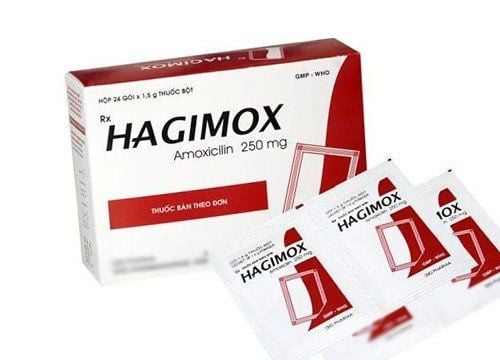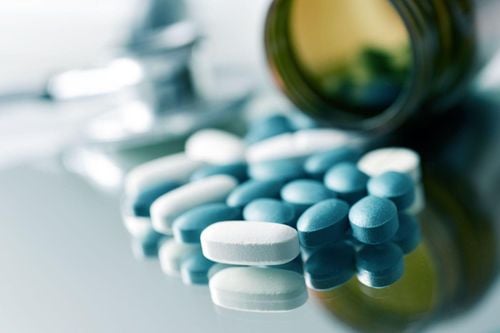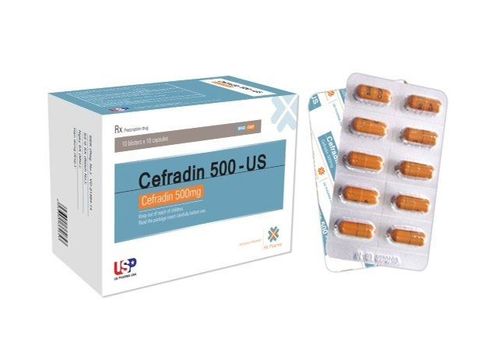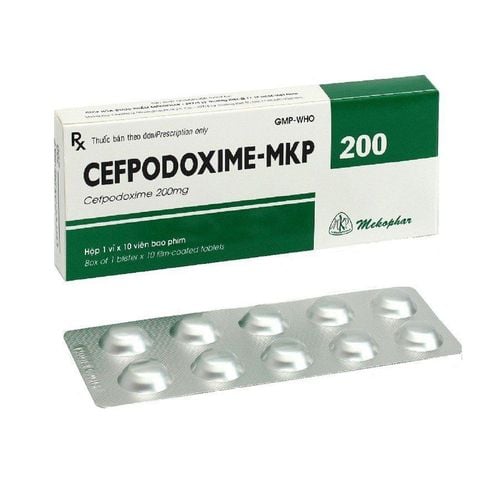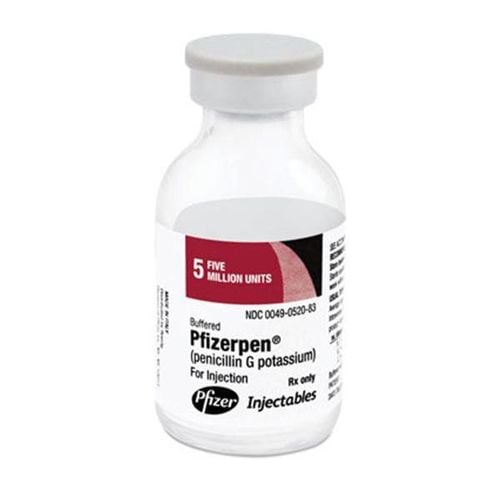This is an automatically translated article.
Korazon Inj drug belongs to the group of antiviral and anti-infective drugs. The drug is indicated for the treatment of bacterial infections in the body. So what precautions should be taken when using Korazon Inj? Let's find out information about the drug Korazon Inj through the article below.
1. What is Korazon Inj?
Korazon Inj drug belongs to the group of anti-parasitic, anti-viral and anti-infective drugs. Effective in the treatment of infectious diseases caused by susceptible bacteria.
Korazon Inj. The drug is in the form of a powder for injection. Available in a box of 10 bottles. Each vial contains the active ingredients: Cefoperazone sodium 500mg and Sulbactam sodium 500mg.
2. What does Korazon Inj do?
Korazon Inj medicine contains 2 active ingredients: Cefoperazone 500mg and Sulbactam 500mg. Cefoperazone is a 3rd generation cephalosporin antibiotic, combined with Sulbactam reduces MIC concentrations up to 4 times compared with the use of each component alone. Synergistic effect of killing bacteria that enter the patient's body.
Currently, the drug Korazon Inj is effective in treating infections on many different types of bacteria.
Korazon Inj is indicated in the treatment of infections caused by susceptible strains of the bacteria and only when parenteral therapy is absolutely necessary:
Respiratory tract infections including upper and lower respiratory tract infections. Urinary tract infections, genital tract. For prophylactic use in prostate surgery. Skin, soft tissue, bone and joint infections. Bile duct infection. Abdominal infection. Infections associated with peritoneal dialysis (peritoneal dialysis). Meningitis caused by gram-negative bacteria (- ). Prophylaxis of infection in abdominal, cardiovascular, genitourinary and orthopedic surgery.
3. How to use Korazon Inj
3.1. How to use the drug Korazon Inj For the drug Korazon Inj, patients use intravenous injection. Dilute the drug with 10ml of distilled water for injection, shake well. Dilute 10ml of the above solution with isotonic NaCl (0.9%), Dextrose 5%, distilled water to get 20ml of solution. Inject within 15 - 60 minutes.
The solution should not contain foreign bodies visible to the naked eye.
Do not let the patient self-inject Korazon Inj without permission. In order for the drug to have an effect on the patient, it is necessary to have the participation and direction of a specialist pharmacist or doctor.
Cleaning the body thoroughly, keeping the body warm regularly, combined with a reasonable diet and regular exercise will help achieve the highest treatment effect when using Korazon Inj.
3.2. Dosage of Korazon Inj For patients with normal renal function:
The exact dose of Korazon Inj and the route of administration depends on age, underlying disease and disease status, severity of infection, and susceptibility of pathogenic organisms.
Adults: Mild and moderate infections can take 1-2g every 12 hours. In severe infections, a dose of 2-4g may be given every 12 hours. The recommended maximum dose is 8g per day in 2 divided doses. Children and infants: Children over 2 months old dose from 40-80mg/kg/day, given every 6 hours. In severe or resistant infections, the dose may be increased to 160 mg/kg/day, given every 6 hours. For patients with renal impairment:
For patients with creatinine clearance between 15 - 30 mL/min, the maximum dose is 2g/12 hours. For patients with creatinine clearance less than 15mL/min, the maximum dose is 1g/12 hours. Cefoperazone can be added for severe infections. It is necessary to have a monitoring regimen and add dose according to the dialysis cycle. For patients with liver failure:
The maximum recommended dose should not exceed 4g/24 hours. 3.3. Overdose:
The data on acute toxicity of cefoperazone and sulbactam in humans are limited. According to reports of side effects that occur with an overdose of Korazon Inj, symptoms include increased neuromuscular excitability, convulsions, especially in people with renal failure.
How to handle overdose:
Stop taking the drug if the patient has seizures. Provide ventilatory support and perfusion. Anticonvulsant therapy may be used if indicated. Perform hemodialysis to help remove drugs from the blood.
3.4. Contraindications to the drug Korazon Inj: Contraindications to the drug Korazon Inj. in the following cases:
The patient is allergic, hypersensitivity to the active ingredients Cefoperazone, Sulbactam or has a history of allergy to Cephalosporin antibiotics and Penicillins.
4. Notes when using Korazon Inj:
Caution when using Korazon Inj drug in the following cases:
Patients need to perform tests and check for hypersensitivity reactions to the drug before use. In case of severe hypersensitivity reactions, the drug must be discontinued and supportive treatment in time. Note when using on people with a history of gastrointestinal disease, especially the colon. Close monitoring is required in subjects with a history of allergy or with hepatic or renal impairment. For pregnant women: This medicine should be used during pregnancy only if clearly needed. It is necessary to consult a doctor and weigh the benefits/risks before deciding to use. Lactation: Cefoperazone is excreted in human milk at low concentrations, which can be considered as having no effect on the infant. However, you should be concerned when you see a child with diarrhea, thrush and a rash. Effects on ability to drive and use machines: There may be some CNS side effects such as headache, convulsions, but very rarely. Care should be taken when engaging in the above activities in patients with impaired renal function. Patients should be advised not to drink alcohol after injecting Korazon Inj. Side effects when using Korazon Inj:
When using Korazon Inj, the following side effects may occur:
Common, ADR > 1/100:
Blood: Positive Coombs test, leukocytosis transient eosinophilia. Gastrointestinal: Diarrhea. Skin: Skin rash. Uncommon, 1/1000 < ADR < 1/100:
Body as a whole: Fever. Blood: Reversible neutropenia, hemolytic anemia, thrombocytopenia. Skin: Urticaria, itching. Local: Phlebitis at the site of infusion. Rarely, ADR < 1/1000:
CNS: Convulsions (for high doses and impaired renal function), headache, restlessness. Blood: Decreased blood prothrombin. Gastrointestinal: Pseudomembranous colitis, nausea. Skin: Erythema, possibly Stevens-Johnson syndrome. Liver: Cholestatic jaundice, mild donation of AST, ALT. Renal: Nephrotoxicity with transient increase in blood urea/creatinine, interstitial nephritis. Neuromuscular and skeletal: Joint pain. Other: Serum sickness, candidiasis. Korazon Inj drug interactions:
Patients should be advised not to drink alcohol after injecting Korazon Inj. Alcohol-containing preparations inhibit aldehyde dehydrogenase, causing accumulation in the blood and a disulfiram-like reaction.
Sulbactam/Cefoperazone should not be mixed with aminoglycoside antibiotics, which may increase the risk of nephrotoxicity, due to their physical incompatibility. It is necessary to monitor the renal function of patients, especially those with renal failure who are taking Sulbactam/Cefoperazone y concomitantly with aminoglycosides.
Concomitant use of warfarin and heparin may increase the serum prothrombin-lowering effect of cefoperazone.
Do not mix the drug with amikacin, ketamycin B, doxycynlin, meclofenoxate, ajmalin to avoid precipitation.
Storage of Korazon Inj:
Store the medicine in a sealed package, at a temperature below 30°C, avoid direct sunlight and moisture.
Above is all necessary information and notes when using Korazon Inj. Korazon Inj is a prescription drug, so patients need permission to use it from the treating doctor.
Please dial HOTLINE for more information or register for an appointment HERE. Download MyVinmec app to make appointments faster and to manage your bookings easily.




